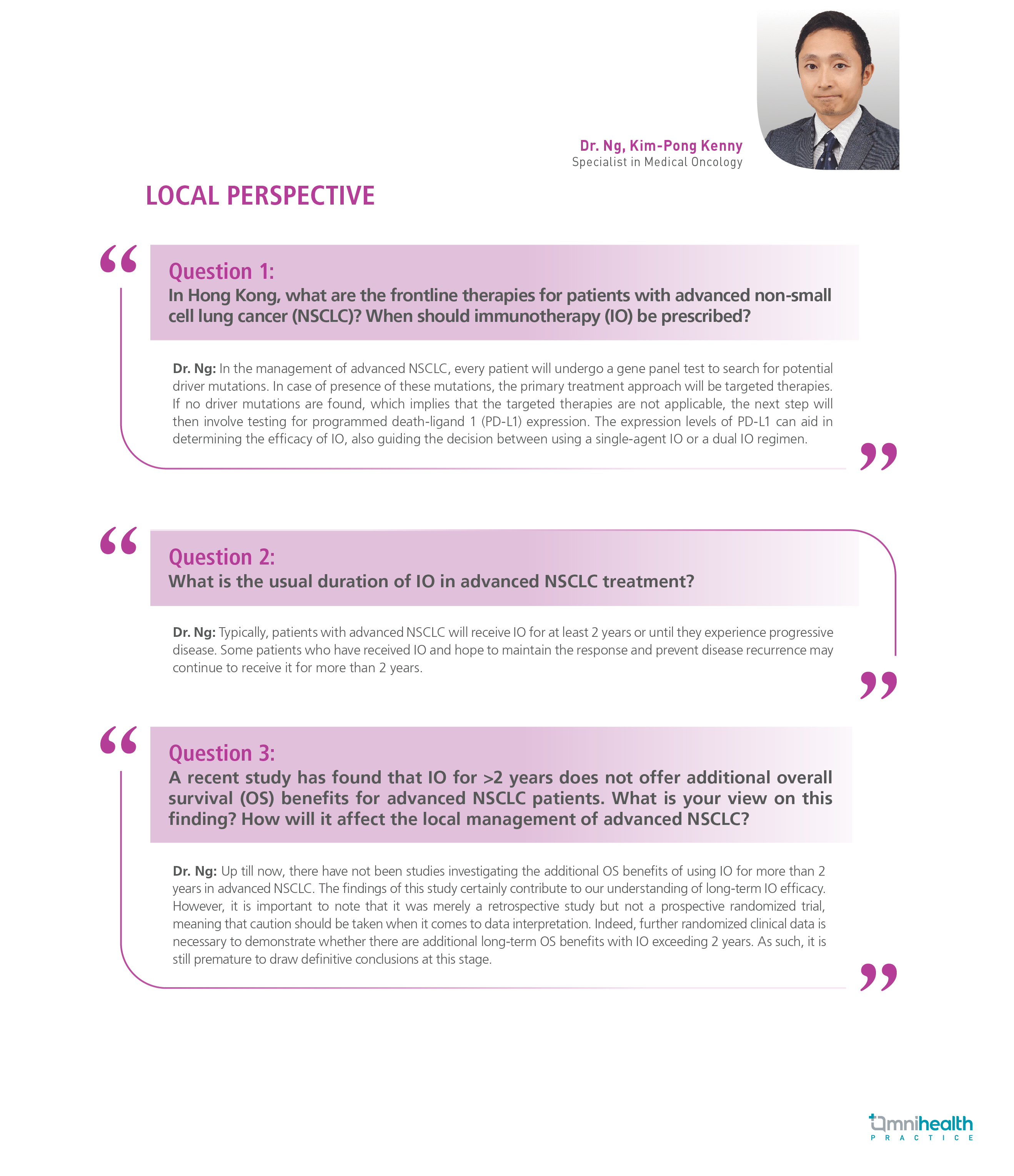CONFERENCE UPDATE: ASCO 2023
Fixed-duration immunotherapy demonstrates comparable survival benefits in advanced NSCLC
Immune checkpoint inhibitor (ICI)-based treatments are one of the front-line options for patients with advanced non-small cell lung cancer (NSCLC).1 However, no optimal duration has been defined.1 At the ASCO 2023 Annual Meeting, Dr. Lova Sun from the University of Pennsylvania, the United States (US), presented the results of a US study that investigated the clinical practice patterns surrounding ICI treatment discontinuation at 2 years.1 Furthermore, the association between the duration of therapy with overall survival (OS) was evaluated by comparing patients who received ICIs for 2 years with those who had received ICIs beyond 2 years.1
Data were collected from the Flatiron Health database which incorporated electronic health record (EHR) data from approximately 280 cancer clinics in the US.1 Patients were diagnosed with NSCLC between 2016 and 2020 and received frontline ICI-based treatment.1 They were divided into the “fixed duration” group who discontinued the ICI treatment at 2 years and the “indefinite duration” group who discontinued the treatment beyond 2 years.1 In addition, eligible patients did not have progressive disease (PD) within 2 years since ICI initiation.1
In the analytic cohort, there were 113 patients in the “fixed duration” group and 593 patients in the “indefinite duration” group.1 Mean age was 69 years.1 Results showed that there was no significant difference in overall survival (OS) between the “fixed duration” treatment group and the “indefinite duration” treatment group (adjusted HR=1.33; 95% CI: 0.78-2.25).1 Specifically, the 4- year OS rates for the “fixed duration” group and the “indefinite duration” group were 79% (95% CI: 66%-87%) and 81% (95% CI: 77%-85%), respectively.1
In this analysis, a total of 11 patients in the “fixed duration” group progressed and rechallenged with the ICI-based treatment.1 Among them, 8 patients received ICI monotherapy, while 3 patients had combination therapy of ICI plus chemotherapy.1 The median progression-free survival after ICI rechallenge (mPFS2) was 8.1 months.1
In conclusion, the study showed that there were no OS benefits for indefinite-duration ICI vs. fixed-duration ICI in the real-world cohort of patients with advanced NSCLC.1 Nevertheless, only about 1 in 5 patients who were progression-free discontinued ICI at 2 years in the US.1 The results may provide reassurance to patients and healthcare providers who wish to stop ICI at 2 years.1



